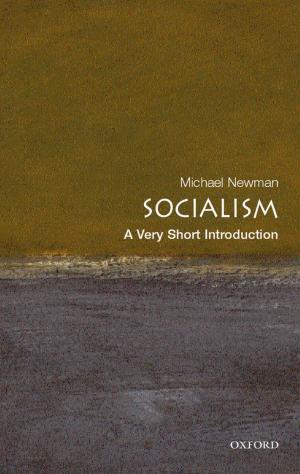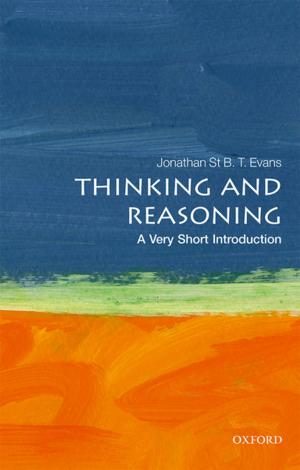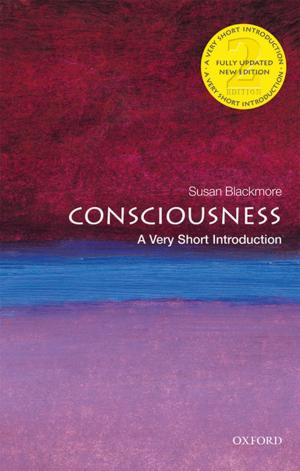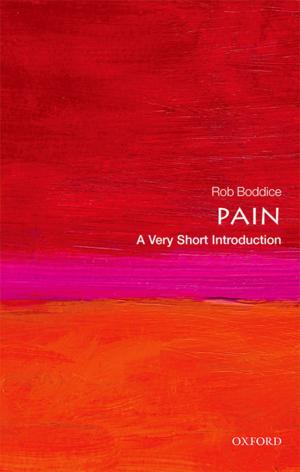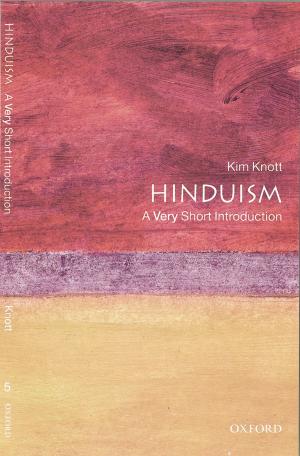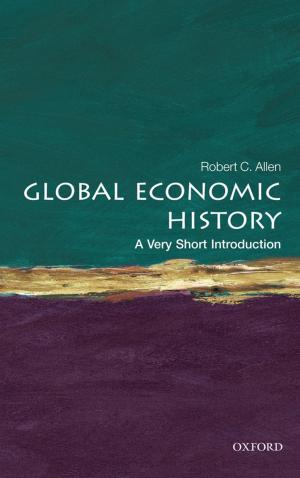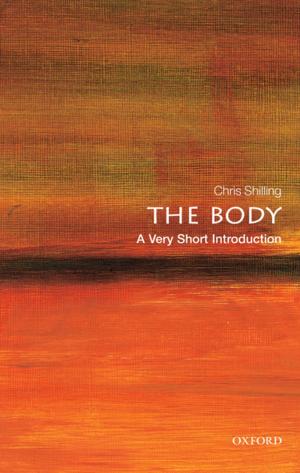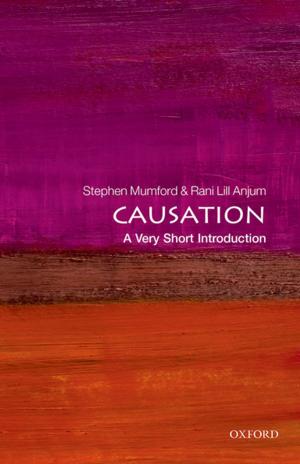Oup Oxford imprint: 6066 books
by Michael Newman
Language: English
Release Date: July 28, 2005
Language: English
Release Date: July 28, 2005
What is socialism? Does it have a future, or has it become an outdated ideology in the 21st century? Michael Newman examines and explains the successes and failures of modern socialism by taking an international perspective — ranging from communism in Cuba to social democracy in Sweden. Discussing...
by Jonathan St B. T. Evans
Language: English
Release Date: September 21, 2017
Language: English
Release Date: September 21, 2017
Our extraordinary capacity to reason and solve problems sets us aside from other animals, but our evolved thinking processes also leave us susceptibile to bias and error. The study of thinking and reasoning goes back to Aristotle, and was one of the first topics to be studied when psychology separated...
by Susan Blackmore
Language: English
Release Date: October 12, 2017
Language: English
Release Date: October 12, 2017
Consciousness, 'the last great mystery for science', remains a hot topic. How can a physical brain create our experience of the world? What creates our identity? Do we really have free will? Could consciousness itself be an illusion? Exciting new developments in brain science are continuing the debates...
by Yujin Nagasawa
Language: English
Release Date: November 16, 2017
Language: English
Release Date: November 16, 2017
Jesus turned water into wine, Mohammad split the moon into two, and Buddha walked and spoke immediately upon birth. According to recent statistics, even in the present age of advanced science and technology, most people believe in miracles. In fact, newspapers and television regularly report alleged...
by Rob Boddice
Language: English
Release Date: July 20, 2017
Language: English
Release Date: July 20, 2017
What is pain? Has the experience of pain always been the same? How is pain related to the emotions, to culture, and to pleasure? What happens to us when we feel pain? How does pain work in the body and in the brain? In this Very Short Introduction, Rob Boddice explores the history, culture, and medical...
by Kim Knott
Language: English
Release Date: February 24, 2000
Language: English
Release Date: February 24, 2000
Hinduism is practised by eighty per cent of India's population, and by thirty million people outside India. In this Very Short Introduction, Kim Knott combines a succinct and authoritative overview of a major religion with an analysis of the challenges facing it in the twentieth century. She discusses...
by Robert C. Allen
Language: English
Release Date: September 15, 2011
Language: English
Release Date: September 15, 2011
Why are some countries rich and others poor? In 1500, the income differences were small, but they have grown dramatically since Columbus reached America. Since then, the interplay between geography, globalization, technological change, and economic policy has determined the wealth and poverty of nations....
by Chris Shilling
Language: English
Release Date: January 28, 2016
Language: English
Release Date: January 28, 2016
The human body is thought of conventionally as a biological entity, with its longevity, morbidity, size and even appearance determined by genetic factors immune to the influence of society or culture. Since the mid-1980s, however, there has been a rising awareness of how our bodies, and our perception...
by Rani Lill Anjum, Stephen Mumford
Language: English
Release Date: November 28, 2013
Language: English
Release Date: November 28, 2013
Causation is the most fundamental connection in the universe. Without it, there would be no science or technology. There would be no moral responsibility either, as none of our thoughts would be connected with our actions and none of our actions with any consequences. Nor would we have a system of...
by David Miller
Language: English
Release Date: June 26, 2003
Language: English
Release Date: June 26, 2003
This book introduces readers to the concepts of political philosophy. It starts by explaining why the subject is important and how it tackles basic ethical questions such as 'how should we live together in society?' It looks at political authority, the reasons why we need politics at all, the limitations...
by David Palfreyman, Paul Temple
Language: English
Release Date: December 15, 2017
Language: English
Release Date: December 15, 2017
What is a university? What is the University? How have universities evolved over the centuries? How might they change over the coming decades as the physical and organisational entity most identified with 'higher education' being delivered to over 250 million students? What will be the impact of digital-...
by Donald Winch
Language: English
Release Date: June 27, 2013
Language: English
Release Date: June 27, 2013
Thomas Robert Malthus (1766-1834) was an English cleric whose ideas, as expounded in his most famous work the Essay on the Principle of Population, caused a storm of controversy. In this Very Short Introduction, Donald Winch explains and clarifies Malthus's ideas, assessing the profound influence...
by Christopher Janaway
Language: English
Release Date: February 21, 2002
Language: English
Release Date: February 21, 2002
Schopenhauer is the most readable of German philosophers. This book gives a succinct explanation of his metaphysical system, concentrating on the original aspects of his thought, which inspired many artists and thinkers including Nietzsche, Wagner, Freud, and Wittgenstein. Schopenhauer's central notion...
by Jonathan Herring
Language: English
Release Date: February 27, 2014
Language: English
Release Date: February 27, 2014
What is a family? What makes someone a parent? What rights should children have? Family Law: A Very Short Introduction gives the reader an insight not only into what the law is, but why it is the way it is. It examines how laws have had to respond to social changes in family life, from rapidly rising...
